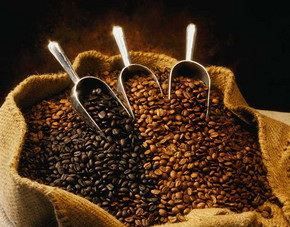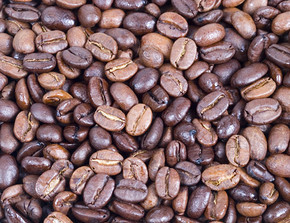Description of climate, topography, taste and flavor of Coffee in Crystal Mountain, Cuba
Pay attention to coffee reviews (Weixin Official Accounts vdailycom ) and find a beautiful cafe to open your own shop
Republic of Cuba
Cuba is one of the few socialist countries in the world (China, North Korea, Cuba, Vietnam and Laos). Cuba is the first country in the Western Hemisphere to establish diplomatic relations with China and the only socialist country in the Americas. Why is it sanctioned? I can only hehe.
Cuba is an archipelago country in the northern Caribbean Sea of North America. It is the largest island in the Caribbean Sea. Most of its territory is low-altitude plains. Havana is Cuba's economic and political center and capital. Cigars, coffee and sugar cane are the three major industries of the Republic of Cuba. They enjoy a high reputation in the world. Who doesn't know Havana?

Suitable climate and terrain
Most of Cuba has a tropical rain forest climate, only the southwest coast leeward slope is a tropical savanna climate, the annual average temperature is 25 ° C, except for a few areas, the annual precipitation is more than 1000 mm, this coffee has the taste of island coffee: low acidity, good mellow, and rich.
History of Cuban coffee cultivation
Coffee was introduced to Cuba from Domica in 1748, but it was not until French immigrants arrived in 1791 that the coffee industry began. By 1827, there were about 2000 coffee estates on the island, and coffee surpassed sugar industry as the main export product.
Due to historical and political reasons, the ownership of coffee plantations has undergone a process of privatization and nationalization. After the Castro Revolution of 1953 - 1961, coffee plantations were nationalized and production was greatly reduced.
Experienced growers fled Cuba because of the revolution, and the government did not take measures to promote coffee farming. Coffee cultivation on the island experienced a turbulent period.
History of Cuban Crystal Mountain Coffee
In Cuba, the cultivation of coffee is managed by the state. The fertile land, humid climate and abundant rainfall in Cuba can be called a natural treasure for coffee cultivation. The suitable natural conditions provide a favorable natural environment for the growth of coffee trees.
Cuba's best coffee-growing area is located in the central mountain range. Because this area not only grows coffee, but also precious minerals such as quartz and crystal, it is also called Crystal Mountain.
Coffee is all hand-picked, high-quality export coffee will be washed to remove defective beans and other impurities to the greatest extent,"Crystal Mountain Coffee" is almost synonymous with top Cuban coffee: soft and lasting fruit acid, clean taste, fine and smooth, excellent balance of sour and bitter and sweet.
Why is it called the Blue Mountains of Cuba?
Crystal Mountain is geographically adjacent to Jamaica's Blue Mountain Range. Its climatic conditions are similar. Its taste is similar to Blue Mountain Coffee and comparable to Jamaica's Blue Mountain. Therefore, Crystal Mountain of Cuba has become the object of comparison with Jamaica's Blue Mountain. Crystal Mountain is also known as "Cuba's Blue Mountain".
Cafe Cubano and Cuban coffee beans
Export markets are dominated by Japan, France, Germany, Ireland and Canada. Japan is the main importer of Cuban coffee, and the sale of Cuban coffee beans in the United States is illegal because of the trade embargo.
However, there is a "Cafe Cubano" coffee drink called Cuban coffee, which is common in coffee advertisements in the United States. It is an espresso brewed with sugar added to coffee powder, not coffee made from real Cuban coffee beans.
... coffee production beyond its means.
Most of the best coffee in the country is exported, accounting for about one-fifth of the total output, and the rest is consumed domestically. This is an interesting place to say that domestic production simply cannot meet domestic consumption. It used to cost 40 million US dollars a year to import low-quality coffee, and even some extreme methods were adopted to meet domestic coffee demand.
Today, Cuba's coffee production is still not high, about 7,000 tons per year, domestic coffee will be sun dried or mechanically dried, export coffee will be washed, old equipment, muddy roads, and backward planting technology, the development of Cuba's coffee industry is a great challenge.
Franklin Delano Roosevelt broke the monopoly of American industry in an unprecedented way, but no one has broken the monopoly of politics on business.
Important Notice :
前街咖啡 FrontStreet Coffee has moved to new addredd:
FrontStreet Coffee Address: 315,Donghua East Road,GuangZhou
Tel:020 38364473
- Prev

Flavor and taste characteristics of Peruvian organic coffee
Following Cafe Review (official Wechat account vdailycom) found that Beautiful Cafe opened a small shop of its own flavor and taste characteristics: high quality and balanced, palatable acidity, can be used for mixed drinks, Peruvian coffee does not have a long history, but as a rising star, Peruvian coffee is gradually opening up its popularity and entering the world. Peru is located in western South America, with a coastline of 2254 kilometers.
- Next

What is Cuban Crystal Mountain Coffee? Cuban Crystal Mountain Coffee flavor
Follow caf é (Wechat official account vdailycom) found that Beautiful Cafe opened a small shop of its own. Do you know the famous Crystal Mountain Coffee in Cuba? Crystal Mountain Coffee is synonymous with top Cuban coffee. Introduction to Cuban coffee: in Cuba, most of the coffee beans are picked by hand. Coffee beans are picked about every half a month during the ripening period. In
Related
- Detailed explanation of Jadeite planting Land in Panamanian Jadeite Manor introduction to the grading system of Jadeite competitive bidding, Red bid, Green bid and Rose Summer
- Story of Coffee planting in Brenka region of Costa Rica Stonehenge Manor anaerobic heavy honey treatment of flavor mouth
- What's on the barrel of Blue Mountain Coffee beans?
- Can American coffee also pull flowers? How to use hot American style to pull out a good-looking pattern?
- Can you make a cold extract with coffee beans? What is the right proportion for cold-extracted coffee formula?
- Indonesian PWN Gold Mandrine Coffee Origin Features Flavor How to Chong? Mandolin coffee is American.
- A brief introduction to the flavor characteristics of Brazilian yellow bourbon coffee beans
- What is the effect of different water quality on the flavor of cold-extracted coffee? What kind of water is best for brewing coffee?
- Why do you think of Rose Summer whenever you mention Panamanian coffee?
- Introduction to the characteristics of authentic blue mountain coffee bean producing areas? What is the CIB Coffee Authority in Jamaica?

